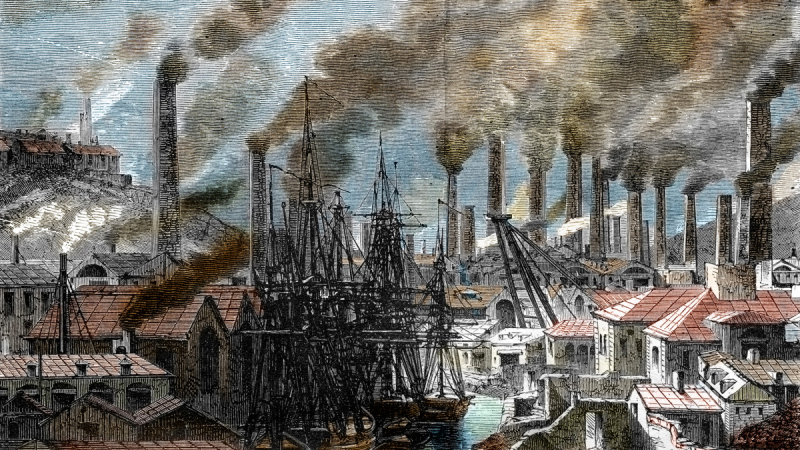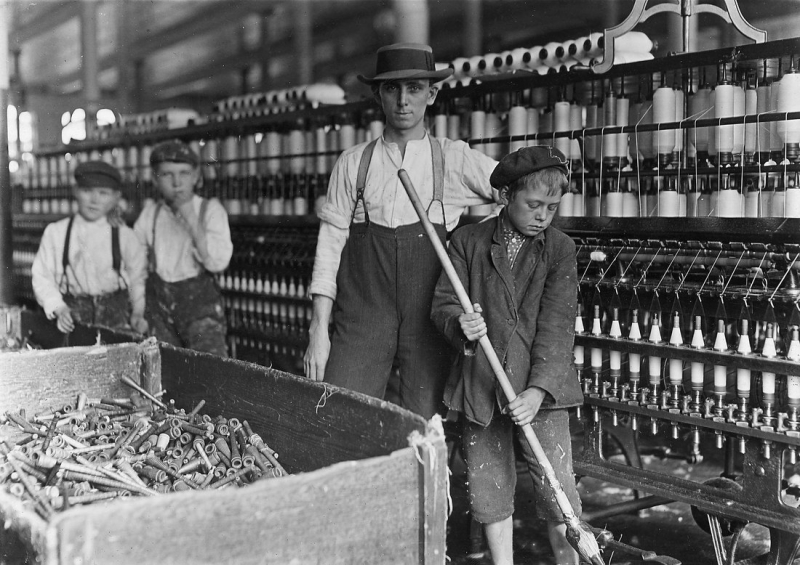New problems
The emergence of great factories and the concomitant immense growth in coal consumption gave rise to new problems. For example, there was an unprecedented level of air pollution in industrial centers; after 1900 the large volume of industrial chemical discharges added to the growing load of untreated human waste. According to Britannica, atmospheric carbon dioxide, a primary driver of global warming, existed in concentrations of 275 to 290 parts per million by volume before 1750 and increased to more than 400 volume by 2017. Furthermore, humans consume more than 40% of the Earth's land-based net primary output, which is a measure of the rate at which plants convert solar energy into food and growth. As the world's human population grows and more people strive for the material benefits promised by the Industrial Revolution, more and more of the Earth's resources are appropriated for human use, leaving a dwindling stock for the plants and animals on which the biosphere depends for ecosystem services (clean air, clean water, etc.).
When factories first appeared in cities and industrial towns, their owners prioritized productivity and profit above all else. Wages and worker safety were less essential. When compared to agricultural employees, factory workers earned higher earnings, but this typically came at the sacrifice of time and less-than-ideal working conditions. Factory workers frequently labored 14–16 hours per day six days per week. Men's low pay was frequently more than twice as high as women's. The wages earned by children who worked to supplement family income were even lower. The factory's many machines were frequently filthy, emitting smoke and soot, and unsafe, both of which contributed to incidents that resulted in worker injuries and deaths. The rise of labor unions, which began as a reaction to child labor, made factory work less grueling and dangerous. During the first half of the twentieth century, child labor was severely restricted, the workday was significantly reduced, and government safety requirements were implemented to safeguard workers' health and well-being.










